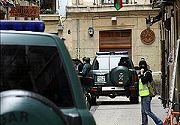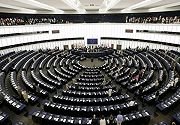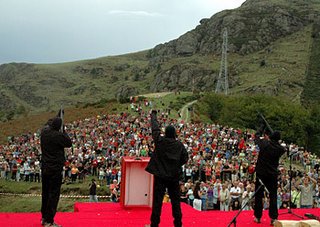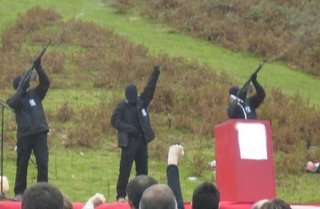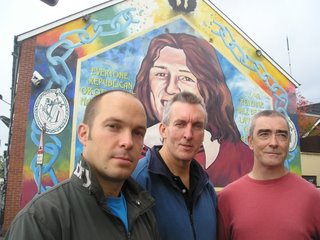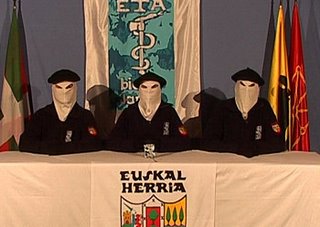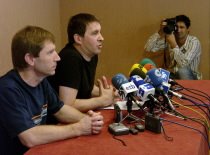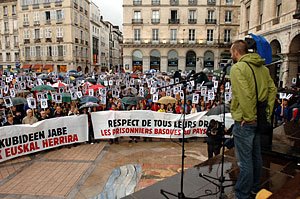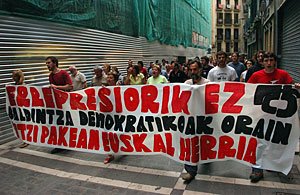
As we already mentioned in previous bulletins he attempt of starting a
peace process has surprisesely provoked a huge convulsion in Euskal
Herria. It could not be in another way, since there are very opposed
interests. The only objective of both the Spanish government and its
Basque very loyal allied, the right wing political party PNV, consists
in eradicating ETA. They have no intention of going to the roots of
the conflict in order to reach an everlasting solution. The Basque
left wing pro independence party on the other hand, does not accept
any false solutions to the conflict, since if the conflict is not
properly solved it will last for at least another forty years or even
longer.
The PSOE and PNV want to achieve their goal by coercing the Basque
left wing pro independence party in many different ways, but in the
end they try very hard to weaken it so that only their conditions are
accepted without any kind of political normalisation. They want just
to defeat the Basque left wing pro independence party by using police,
judicial, mass media and economic repression. Even if so, from the
Basque left wing the answer has been very different, it has mobilised
its supporters in a positive way and always having the future in mind.
The strategy has been to answer repression by increasing nation and
democracy consciousness, asking for self determination.
The grounds of this initiative
On September 16th an ample and qualified group of representatives of
the left wing pro independence party appeared to announce the
beginning of a campaign the aim of which is to gain the right of self
determination. An initiative to add forces which was held in many
places; the slogan of this campaign was: "We have to back a democratic
resolution of the conflict because we need self determination". This
vindication is to be made everywhere in Euskal Herria.
· Objectives: the campaign itself has two objectives: "To promote
strongly this historic opportunity in order to find a solution and to
face false expectatives."
· Punctual reasons to back the Peace Process: "The process is
undergoing very hard times, it nowadays suffer of a blockade. Despite
the fact that it should be the exercising of a democratic right, it is
nowadays just another sort of process the aim of which is to weaken
and condition the left wing pro independence party. The Basque right
wing party PNV is the accomplice of the Spanish PSOE in this task".
· Positive elements: "The already started democratic process has been
backed by most of the Basque population. The political debate
originated under these circumstances has reached every corner within
the Basque Country. Save for very rare exceptions, the different
political, social and unions' agents have let very clear the relevance
of political negotiation. The matters to be discussed, this is,
territoriality and self determination are very present in the debate.
Despite the blockade there is an almost universal will to continue
advancing".
Development of the campaign for self determination.
· Backing of relevant characters: referential people in the struggle
of our nation in favour of freedom consider that the political
situation that we are undergoing is crucial and that the strategy by
the left wing pro independence party is the most adequate answer in
order to solve the situation in a positive way. There was a first
appearance on the 20th of September in Donosti, and another way on the
27th in Bilbo. In both cases the message is pretty much the same; the
characters that appeared made clear the importance of the campaign
showing their solidarity at the same time.
· People's backing of the process: on the 30th of September five
simultaneous demonstrations were held; they all had the same
vindication: "Euskal Herria, self determination": In Baiona hundreds
of demonstrators took the streets. In Iruñea 1.500 people took part in
the demonstration. It is worth mentioning the presence of ex prisoners
carrying a banner. In this demonstration as well as in the rest of
them there is the same message going on: "The right to decide is
essential. Where is freedom if it is not recognised? If the persons
have rights why not the nations?" The demonstration which happened in
Bilbo was the most populous one with almost 8.000 people. It has a
clear internationalist connotation. The slogans in favour of
independence and socialism get mixed with other mottoes in favour of
Lebanon and Palestine. Many participants wearing Palestine shawls ask
for the active boycott against sionism. In Donostia 3.000 people ask
for independence and democracy for Euskal Herria. In Gasteiz 1.500
participants march with the photographs of the Basque political
prisoners; they also carried banners in which appeared the different
nations fighting for their freedom and against imperialism.
· To fight fascism: self determination. On the 12th of September Spain
celebrated the day of the Spanish patriotism. This day, as it can be
easily understood is very critically seen from Euskal Herria. This
year Iruñea has had a special political relevance, since the Spanish
right wing has chosen this territory to transform it into its
stronghold and in this way reject every Basque nationalist
expectations. On the one hand, the Spanish military police: "guardia
civil" organised a parade in which military, political and religious
authorities (As the Pope in Rome made some weeks ago, the archbishop
of Navarre wore the Spanish military police cap during the
celebrations); on the other hand, the pro nazi Spanish movement
organised a street demonstration protected by the Spanish police. In
the evening almost 3.000 citizens from Navarra, facing all these
provocations, went to the street to ask for their right to decide.
The Big Walk. The social and political agenda for these months is full
of events to ask for our right to decide our own future. It would be a
hard task just to mention them all. The most notorious one took place
in Bilbo on the 11th of November. 26.000 people of all ages marched in
the streets with a banner with the slogan of the campaign. At the end
of the celebration Arnaldo Otegi, one of the usual representatives of
the left wing pro independence party: Batasuna, transmitted these very
same messages to all the expectant citizens: "Night is even darker
just before daylight; things go wrong but there is a chance somewhere
there? They should stop using ETA and street fighting as a mere
excuse; the responsibility to make the peace process advance is mostly
in the hands of the political parties of Euskal Herria and, it is also
in the hands of the Spanish government in order to stop all the
aggressions against the Basque left wing. It is a paradox that the
official pacifists are afraid of peace and political debate, and yet
we "the aggressive and violent ones" are the ones who are claiming for
it. They know that their political project is weak and we know that we
will achieve independence as long as we are let free to make our own
choice. Our aim has a huge dimension since we want to solve an armed
conflict that has been going on for centuries; this is why the Basque
left wing is taking the right decissions; but are we asking for the
same compromise to the rest of the agents; the left wing pro
independence party will never sign a document which has no guarantees
for a democratic context in this country and for the definitive
solution of the conflict"
Euskal Herria, 1st December 2006
info@askapena.org // www.askapena.org




